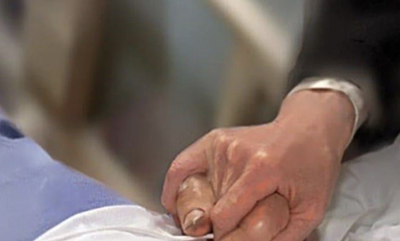DOVER, Del. — Delaware lawmakers are indicating the potential for a veto override after Governor John Carney rejected House Bill 140, which would have allowed terminally ill adults to end their life via medication.
The veto has sparked strong reactions from legislators, setting the stage for a renewed battle in the General Assembly.
Democratic Leaders Express Disappointment
Senate President Pro Tempore Dave Sokola, Senate Majority Leader Bryan Townsend, and Senate Majority Whip Elizabeth “Tizzy” Lockman issued a joint statement condemning Carney’s decision and signaling their intention to pursue a veto override when the legislature reconvenes in 2024.
"While we are frustrated with Governor Carney’s decision to veto House Bill 140 and paint an incomplete picture of such a profound issue, we know our feelings on the matter in no way match the disappointment and pain of the terminally ill patients and their families who hoped to have greater autonomy over their final health care decisions with this legislation," the statement reads in part.
The lawmakers contemplated a veto override in 2024 or via new legislation in 2025, indicating their continued pursuit on the controversial legislation.
Bill Sponsor Rep. Paul Baumbach writes in a statement that all six Democratic leaders in the state have been fully supportive of HB 140.
"I am particularly grateful to Speaker Longhurst, who has already voiced her support for a veto override."
Governor's Veto & Republican Opposition
One of the reasons the governor gave for vetoing the bill is he does not believe a consensus has been reached on this issue. Carney noted that the legislation was passed by just one vote.
In his statement, Carney referenced the American Medical Association's view on medical aid in dying in that it is "fundamentally incompatible with the physician’s role as healer."
That argument was echoed by State Rep. Rich Collins (R-Millsboro), who has been a vocal opponent of the bill, citing concerns that the option could lead to seniors being coerced into prematurely ending their lives.
“I was an insurance agent for 37 years, and I sold life insurance and investments,” he told his colleagues in the chamber. “I had situations during my career where…the children of an older person made it clear they wanted their parents to go because of the money. I have a lot of concerns about some people’s motives.”
The Bill's Specifics
According to Rep. Baumbach, under the version that passed after multiple revisions, medical-aid-in-dying would only be available to adult state residents diagnosed with an incurable and irreversible disease, illness or condition who has been given a prognosis of six months or less to live by at least two medical professionals. Advanced age, disability, mental illness, or chronic health conditions would not be qualifying factors for eligibility in Delaware’s medical-aid-in-dying program.
Baumbach says a terminally ill patient would be required to demonstrate an ability to understand and appreciate the nature and consequences of their decision, including through the determination of a licensed psychiatrist or psychologist.
Uncertain Path Forward
With Baumbach’s departure and an election year ahead, the bill’s future is uncertain. A successful override would require two-thirds support in both chambers—a higher threshold than the original vote.
While Democratic leaders are hopeful, the outcome will likely depend on whether they can rally enough support among their members and persuade a few Republicans to join them.
""While this veto is a setback, we have overcome setbacks like this for a decade," Baumbach said in a statement. "I will continue to fight for the rights of those confronting terminal prognoses to make their own choices about their life, their suffering, and their final moments."
The bill would have made Delaware the 12th jurisdiction in the United States to permit assisted suicide.







